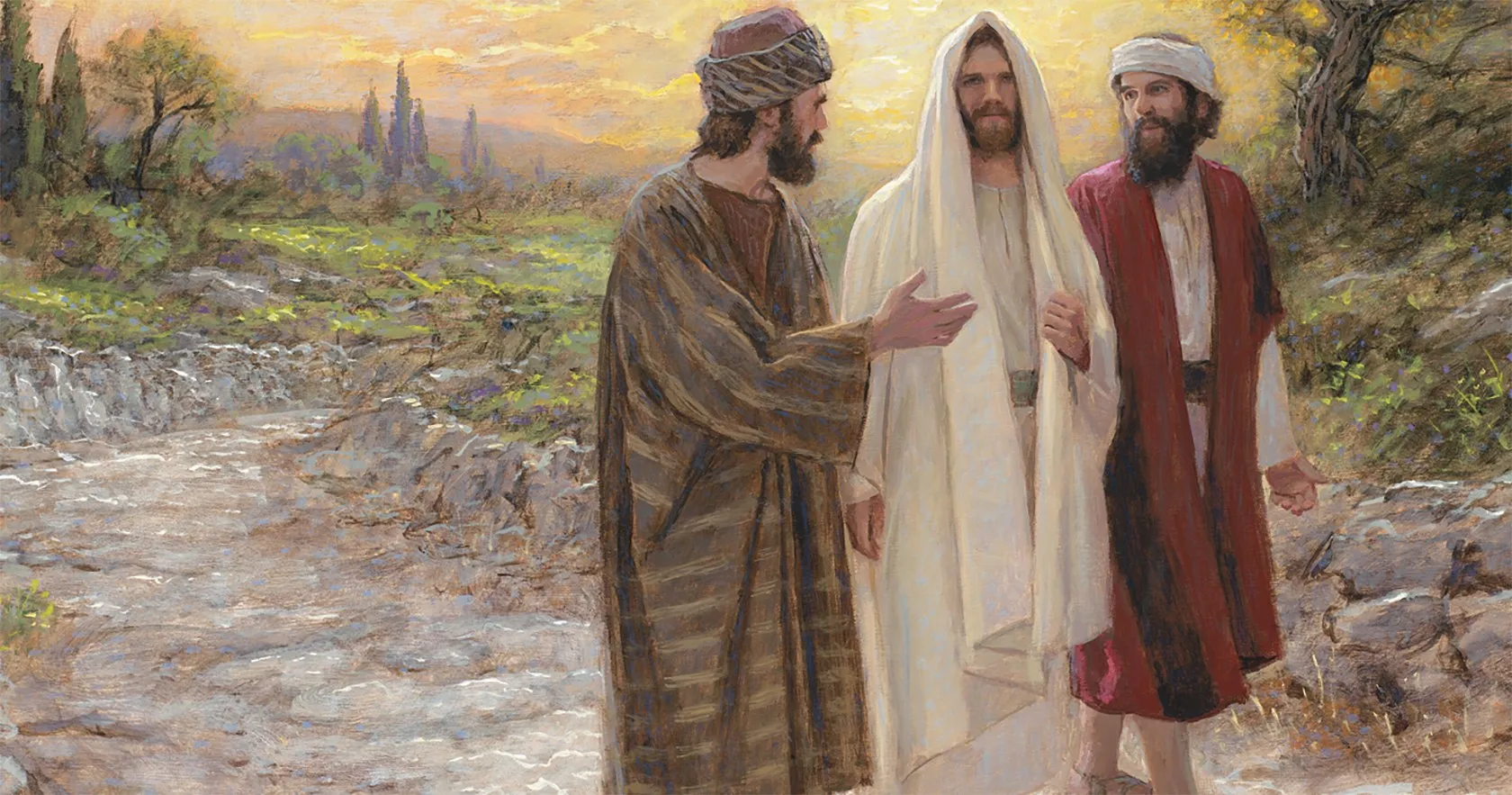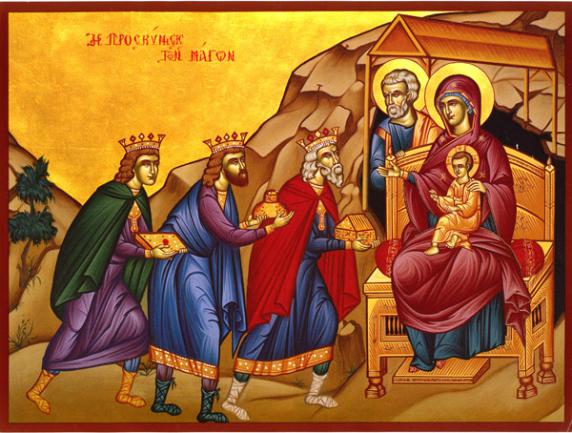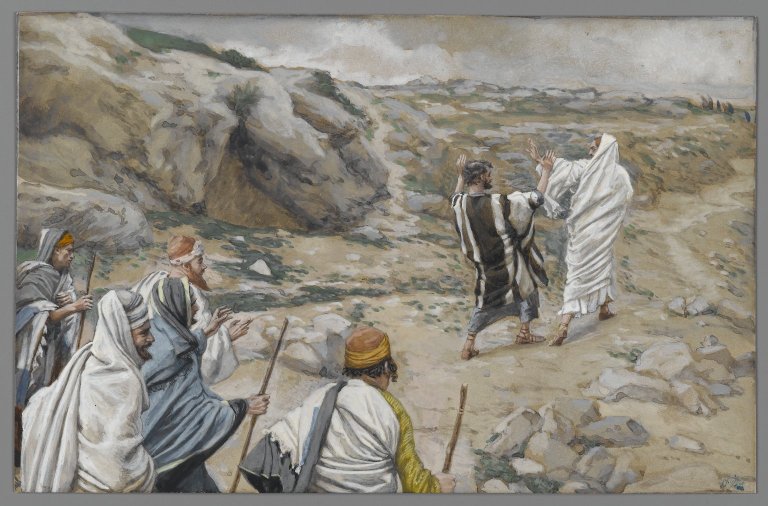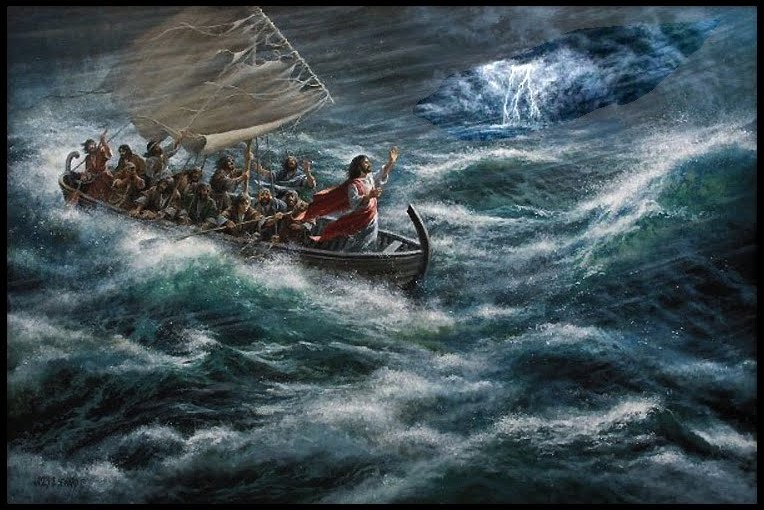How often have you said something that began with “I’ll be happy when…”? You know, “I’ll be happy when I’m done paying for the kids’ college tuition;” “I’ll be happy when I get that promotion;” “I’ll be happy when I lose that last ten pounds;” “I’ll be happy when I can afford that new car…” We’ve all done it, we’ve all set our hopes for happiness on some future event or accomplishment. But then it gets there, or it doesn’t, and we’re not as happy as we’d like to be, so we look for happiness in something else. Today’s Liturgy of the Word tells us that we’re doing it wrong. We have to learn that we’re supposed to be happy in the journey.
Listen to what the Psalmist says today: “You will show me the path to life, abounding joy in your presence, the delights at your right hand forever.” Abounding joy happens along the path to life, at God’s right hand, who accompanies us on the journey. Well, today’s Gospel finds two of Jesus’ disciples on a journey Jerusalem, where a lot of crazy stuff just went down, to Emmaus. Along the way, they are discussing what had been going on, and we can just imagine how their minds had to be reeling! For those of us who know the story, it’s pretty incredible. But for them it had to have been mind blowing. They were never expecting anything like this. But here they were, walking along, discussing how Jesus’ death and everything that happened afterward turned all of their expectations upside-down, and they didn’t know what to make of it all.
And into that experience, as they journeyed along the road, Jesus appears. They don’t get that it’s Jesus, though, for whatever reason. So along the way, he explains how all the scriptures foretold all that had happened to their friend, who happened to be talking to them right then. But they still don’t get it. So after they stop for the evening and invite him to dinner, they finally recognize him in the breaking of the bread. All of this, I think, is very interesting to us who are on the journey to be with the Lord and delight at his right hand forever.
Because we’re all on a journey, brothers and sisters. We are never at home in this world, as nice as it is. We’re supposed to be in heaven, where there will be happiness forever. But we can still seek reasonable happiness here on earth, and I believe we will find it if we just rejoice a little in the journey. But to really enjoy the journey, we have to enter into it with our whole hearts and souls. We can’t be wandering off the path and looking for happiness in all the wrong places. We have to focus on the journey from here to heaven if we ever really want to be happy in this life.
So how do we do that? Well, I think our Gospel story gives us some clues. The first is to keep moving on the journey. If God has called you to do something, go somewhere, try something, change something, then do that thing! When we stop going because we think we’re not good enough, or that someone else would be more worthy, or whatever excuse we have, then we’re selling God short. Because the truth is we are not good enough, all by ourselves. We’re not the most worthy. But, and this is very important to know, brothers and sisters, God can call whoever he wants to do whatever he wants done. It’s not about you or me or who’s doing it. God is in charge, always and forever, and he will always give you what you need to do what he’s called you to do. So keep going.
The second clue is we don’t go it alone. There were two disciples going to Emmaus, and into their journey, our Lord asserted himself. He did promise that elsewhere in the Gospel: “Where two or three are gathered, there am I among you.” Other people on the journey give us accountability. They help to keep us on the right path. And frankly, it’s more pleasant to journey with others.
The third clue is that we have to open ourselves up to the scriptures. The scriptures aren’t just stories written for people thousands of years ago. They are inspired by the Holy Spirit and intended as much for us as they were for our ancestors in faith. You will be surprised how much the scriptures speak to you when you open them up on a regular basis. Just a few verses a day is a great way to start, and it can really enliven your prayer. The scriptures enlivened that journey with the disciples and made their hearts burn within them. That can happen for us too, and it should.
The final clue comes in the breaking of the bread. That one seems pretty obvious, but it was a real eye opener for those two disciples. In the breaking of the bread, they saw the Lord. We can too, every time we receive the Holy Eucharist. Just as those disciples came to recognize Jesus in the breaking of the bread, so it can be for us. Filled with the grace of Holy Communion, maybe we can recognize our Lord with fresh eyes and truly see him in our brothers and sisters. Maybe we will see our Lord in the faces of the needy when we come to serve them. Maybe you will see him in the faces of your children as you teach them and correct them and love them into the kingdom of God. Maybe you will see him in the face of a coworker or friend who is going through a difficult time. As we love those people the Lord puts in our paths, maybe we can see our Lord among us in a new way.
You’ve probably heard, “It’s not the destination, it’s the journey.” For us Catholics that’s half right. Because yes, it is about the destination. We certainly want to get to the ultimate happiness of heaven. But it needs to be about the journey too. Because it’s on the journey that we grow in our faith, and see our Lord walking with us. The journey might be long and difficult, but it’s always blessed by our Lord if we choose to look for our happiness along the way.
Christ is risen! He is risen indeed! Alleluia!








You must be logged in to post a comment.